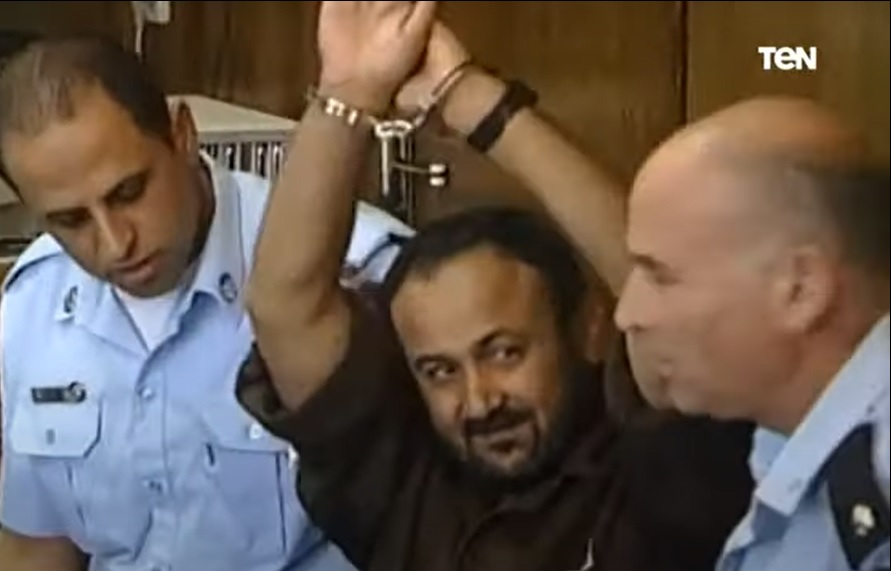One key demand of Hamas is the release of senior Fatah official Marwan Barghouti from Israeli prison.
The assumption is that Barghouti’s release could undermine the U.S. plan to establish a “revitalized PA” and weaken the Palestinian Authority’s (PA) influence in Gaza.
This demand has raised concerns within the PA leadership, as the release of Barghouti and Ahmed Sa’adat, leader of the Popular Front, is being linked to a deal involving Israeli hostages.
Following the October 7 incident, Barghouti was placed in solitary confinement to prevent coordination with terrorist elements.
The PA is grappling with a decline in its standing on the Palestinian street, especially after the Gaza settlements massacre.
A growing segment of the population no longer supports the Oslo Accords and the two-state solution, favoring armed resistance against Israel.
Despite Fatah’s diminishing influence, Marwan Barghouti remains popular among Palestinians.
The imprisoned Fatah leader, serving five life sentences for his role in the second intifada, is considered a potential successor to PA leader Mahmoud Abbas.
New terrorist groups in northern Samaria, some with ties to Fatah, also enjoy substantial support among Palestinians.
Barghouti is cautious in his approach to Hamas, recognizing its potential role in securing his release.
He advocates for national unity and, after his release was blocked in 2011, received assurances from Hamas leaders regarding future negotiations.
Concerns within the PA, especially from figures like Hussein al-Sheikh and Majed Faraj, highlight fears that Barghouti’s release could destabilize Abbas’s rule.
Recent statements by al-Sheikh about reconciliation with Hamas have further fueled resentment toward the PA on the Palestinian street.
Hamas sees Barghouti’s potential release as an opportunity to gain more public support and showcase its commitment to a comprehensive approach involving prisoners from various factions.
This move could strengthen Hamas’s position within the PLO and challenge Fatah’s dominance.
Hamas’s long-term strategy includes leveraging any major prisoner exchange with Israel to release prominent Fatah members who oppose Mahmoud Abbas, thereby thwarting President Biden’s plan for a “revitalized PA” that collaborates against terrorism.
As negotiations for a new prisoner exchange deal remain at a standstill, it is crucial for the Israeli political echelon to recognize that the release of Marwan Barghouti poses not only a security risk but also a potential threat to the envisioned Palestinian rule in Gaza after a potential collapse of Hamas rule.




